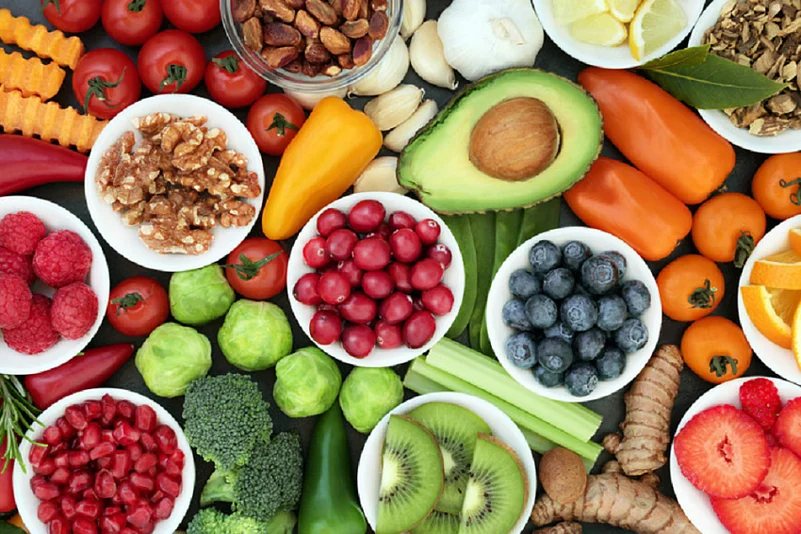It is said we are what we eat, and these unprecedented times, brought upon by Covid-19 pandemic, have indeed unleashed the truth. Our food feeds our body and mind, prevents infection, boosts immunity, fights diseases, promotes growth among children, and keeps us nourished with essential micronutrients.
And yet, with a plethora of information circulating around, it is easy to get confused on how to optimise your diet.
The five key points below will help you keep your family on track to good health.
1. Choose your oils wisely: Fats and oils have been wrongly blamed for causing chronic illnesses. With this information you do not have to bring your fried snacks back on the table – sorry for the bummer! Include sources of omega 3 fatty acids in your diet and reduce refined vegetable oils rich in omega 6 fatty acids. Omega 6 and omega 3 fatty acids are both required in equal quantities by our body from the food we eat. High intake of refined oil disturbs the ratio in which these two fatty acids are required resulting in detrimental impact on the body. To optimise this ratio, strive to reduce rich sources of omega 6 fatty acids such as sunflower, safflower, soyabean, corn-refined oils. You can include desi ghee, olive oil, mustard oil instead for daily cooking.
Advertisement
2. Lower the intake of carbohydrate: Carbohydrates, a macronutrient, makes a part of almost all foods we eat, excluding fats, oils, butter. Refined or whole wheat, rice or millets, potato or spinach, carbohydrates are present in varying quantities and, if chosen correctly, brings together the benefits of fiber for the gut and vitamins and minerals. Eliminating intake of processed simple carbohydrate loaded foods, such as bread, noodles, biscuits and allied snacks, will go a long way in maintaining your health. Furthermore, adding foxtail millets to your diet, and including ragi, bajra, in your wheat flour, at the same time increasing your portion size of pulses and nuts by decreasing cereals will help balance your diet with the goodness of health.
Advertisement
3. Eggs, fish, dairy: Animal foods as the name suggests includes items that come from animals. These include milk, cream, egg, cheese, cottage cheese, yogurt, fish, meat, chicken. Animal source foods can provide a variety of micronutrients that are difficult to obtain in adequate quantities from plant source foods alone. Vegetarians tend to be particularly deficient in some of the nutrients such as Vitamin B-12 and consumption of dairy products becomes essential. Those of you who enjoy animal foods, should include fish and whole eggs (yes you read that right – eggs with the yolk!) in your daily diet.
4. Cut down sugar in all its forms: We need to, first, keep away from Sugar. While we do recognise sweets, chocolates, aerated drinks in this category easily; brown sugar, jaggery, honey, high fructose corn syrup are also different forms of sugar, which goes unrecognised. They contain similar amounts of calories and have the same effect on our blood sugar levels as consuming raw sugar. The advantage advocated for some of the minerals they have, are well in trace amounts and can be sourced in your diet from other foods.
5. Seed your way out: Seeds are rich in fats, protein, fibre, calcium, iron, magnesium, vitamin B-6, zinc, among other vitamins and minerals. Flaxseeds, chia seeds are also great sources of omega 3 for vegetarians who cannot consume fish! As you lower your intake of carbohydrates, including seeds, like flax, sesame, chia, pumpkin, melon seed, and nuts, like walnuts, peanuts, almonds, can make up for those lost calories while providing wholesome nutrition. You can soak chia seeds and drink, can include substantial amounts in your daily salads, enjoy roasted seeds as snacks and guess what you can even make your own bread using almond flour or flaxseed flour! The floor to experiment is all yours.
Advertisement
It’s time to keep it simple and reinvent how you see nutrition for yourself.
(Dr. Smriti Sharma, PhD Food and Nutrition, University of Delhi, Program Officer – Mother Infant Young Child Nutrition, Tata Trusts.)




















